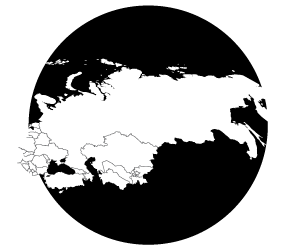We welcome your feedback
Your input matters. Help us improve the CIF website by completing a brief survey. It will only take two minutes and will support our ongoing efforts to serve you better.
This region contains the European Union — the second-largest global economy; four of the top 10 richest countries on Earth; the five nations of Central Asia — Kazakhstan, Kyrgyz Republic, Tajikistan, Turkmenistan, Uzbekistan; the land mass that bridges both Europe and Asia; and Türkiye. Fifty-four of the region’s countries are either high- or middle-income economies.
Its total population is fast approaching one billion, with a marked transition to an older population structure. In some of the richest European economies, the share of people who are over 80 years old is expected to increase from six percent to 15 percent by 2100; as such, an overall decline in population is expected over the next few decades. Even Central Asia, where the current median age of its population is in the mid-20s, is anticipating a significant age increase.
Given that some countries in the region are the world’s largest sources of carbon-absorbing boreal forests and grasslands, they are globally important for climate-mitigation efforts.

The Climate Investment Funds (CIF) have enabled several important adaptation and mitigation interventions in some of the most vulnerable countries in the region.
Kyrgyz Republic: CIF’s Pilot Project for Climate Resilience (PPCR) is supporting the landlocked Kyrgyz Republic to develop a strategic plan for strengthening climate resilience in a nation, characterized by limited water supplies and a heavy reliance on agriculture. The program aims to build capacity for adaptation at the institutional level and in the country’s water, agricultural, and energy sectors.
Türkiye: CIF’s Clean Technology Fund is enabling Türkiye to expand domestic renewable energy production and increase energy efficiency. With a rapidly growing economy, the country aims to be less dependent on energy imports by striving for cleaner, greener growth. Through wind power expansion, smart-grid upgrades, and other climate-smart projects, the country has already massively cut greenhouse gas emissions and saved $568 million in avoided oil imports annually. This market has successfully matured to one that can be financed on purely commercial terms.
Tajikstan: Grant financing under PPCR is enabling Tajikstan, one of the poorest and most vulnerable countries in the region, to climate-proof key water and hydroelectric infrastructure and support sustainable land management measures to protect rural livelihoods and jobs.
Your input matters. Help us improve the CIF website by completing a brief survey. It will only take two minutes and will support our ongoing efforts to serve you better.
